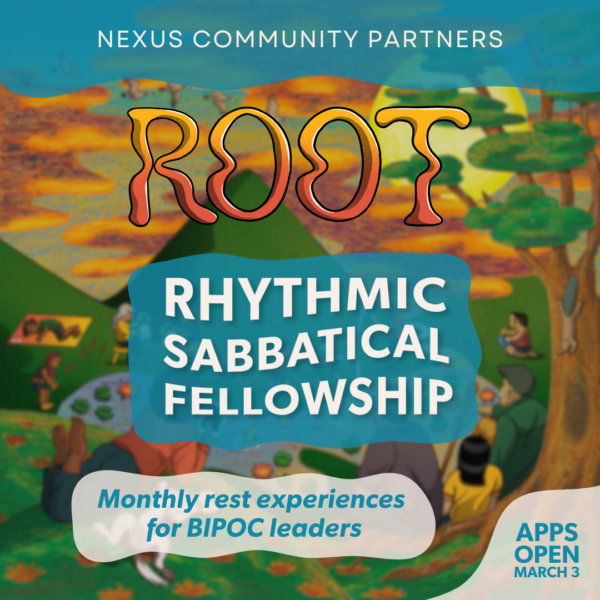When ROOT (Reclaiming Our Own Time) put out two distinct calls to community leaders of color to reclaim their own rest through sabbatical opportunities, the response was overwhelmingly honest. The ROOT team heard stories of burnout stemming from racial aggression, the pandemic, economic injustice, and years of not seeing progress on issues that truly matter to our communities. They also read so many dream stories of desires, of what rest could look like, of how rest could fill those cups and make whole these wonderful human beings.
In the Continuous and Rhythmic Sabbatical fellowship cohorts, a total of 25 individuals were able to embark on their journeys to radically, powerfully reclaim rest. The two different tracks were designed to ensure people in different walks of life were able to apply and experience restfulness.
- 10 Continuous Sabbatical fellows received $30,000 each to design and implement their own three-month sabbatical. Whereas the Rhythmic Sabbatical fellowship was a 15-person cohort that embarked on a monthly sabbatical experience (ranging from weekend excursions to weeklong trips) for six months to reclaim rest, meant for those who could not take continuous time off or leave their roles. Our cohorts were intergenerational and cut across identities and geographical locations in Minnesota.
In November 2025, both cohorts converged at a celebratory finale to share their experiences with each other, to trade stories and lessons learned, and reflect on how they might bring their learnings forward to continue reclaiming their own time beyond these sabbaticals.
Some of the insights shared:
- There is no one right way to rest. As our environment changes, as we change as people, so do our rest practices.
- We are interconnected. Sometimes it takes a village to rest!
- It can be difficult to know when to make a shift to welcome rest—but it’s always worth it!
The celebration also featured the opportunity to learn about Puerto Rico’s liberatory drumming and dance culture and its Afro-Indigenous roots, shared by the Boriken Cultural Center.
The ROOT team was incredibly grateful and proud of all 25 cohort members for embarking on this life-changing journey. Choosing yourself and rest is not always the easiest choice, yet something so incredibly needed in these times.
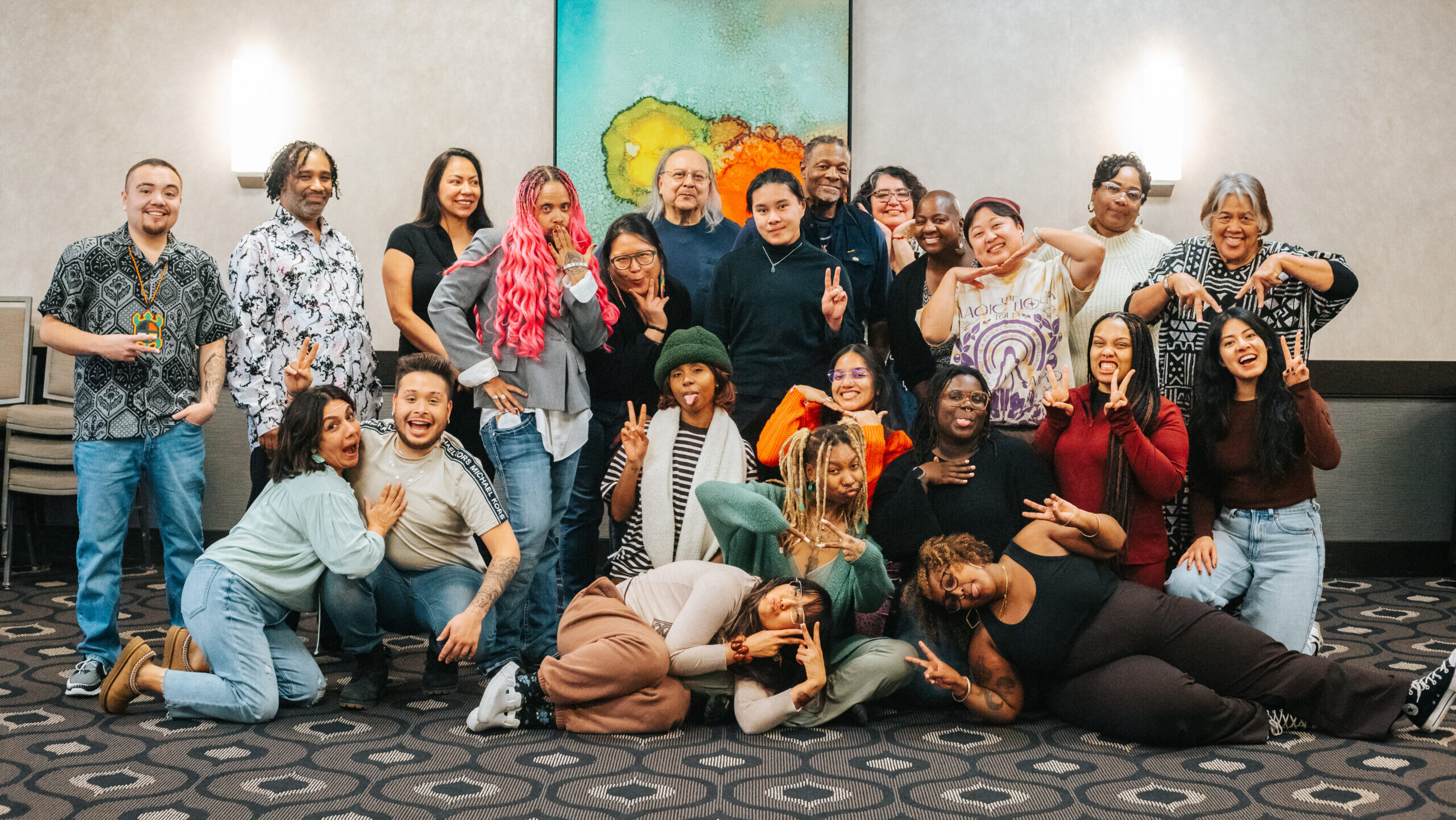
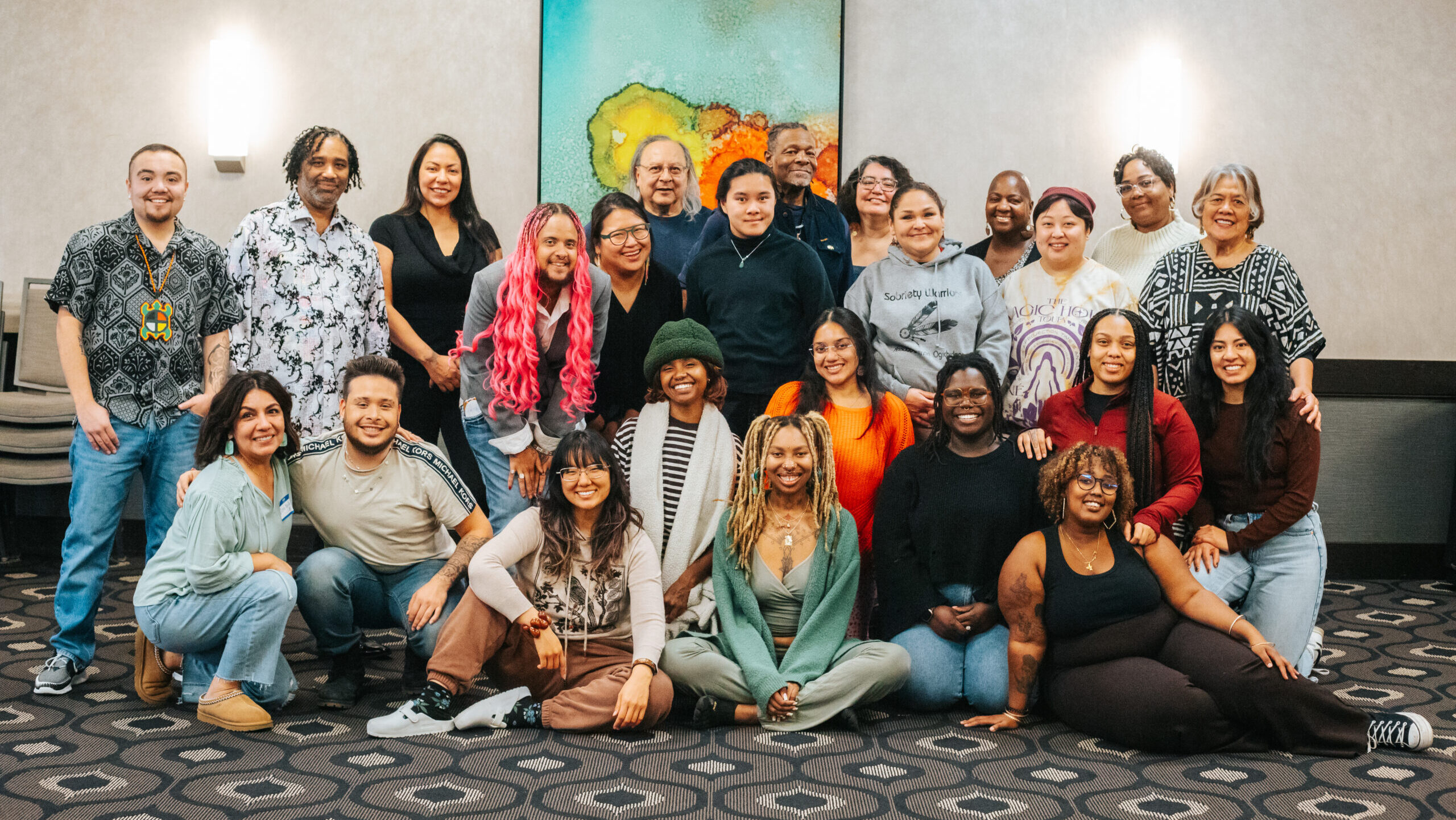
Photos by Pa Vang
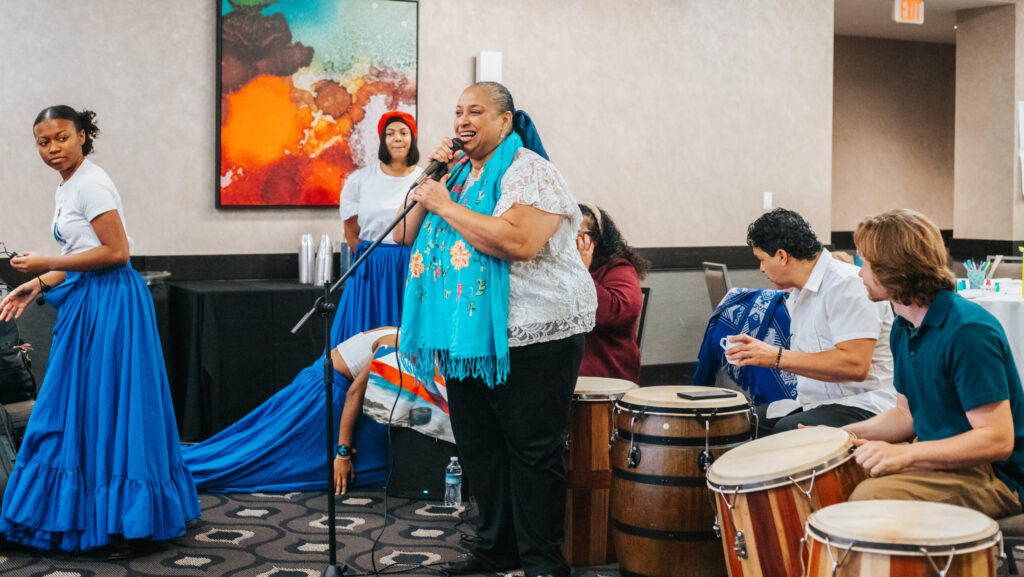
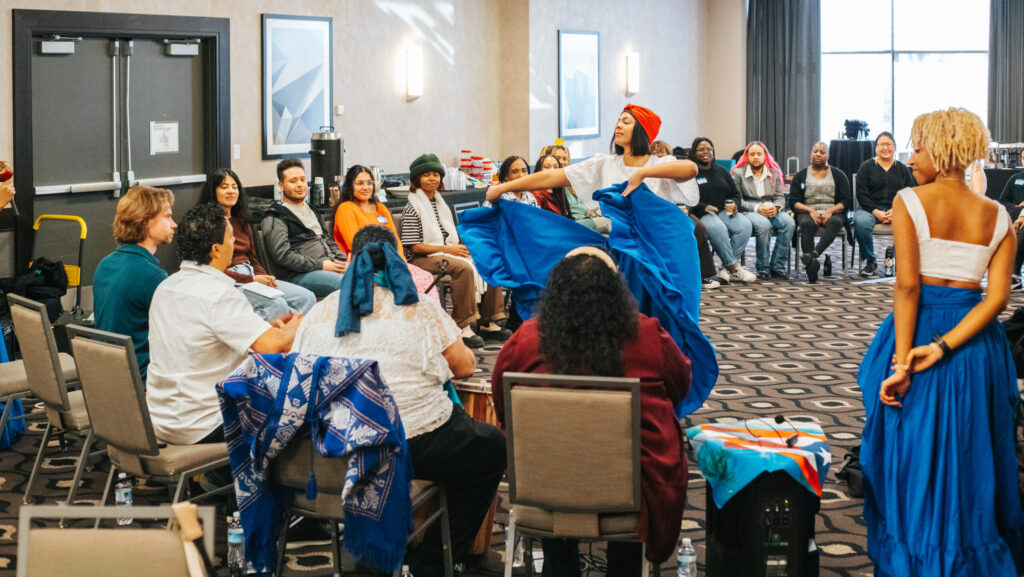
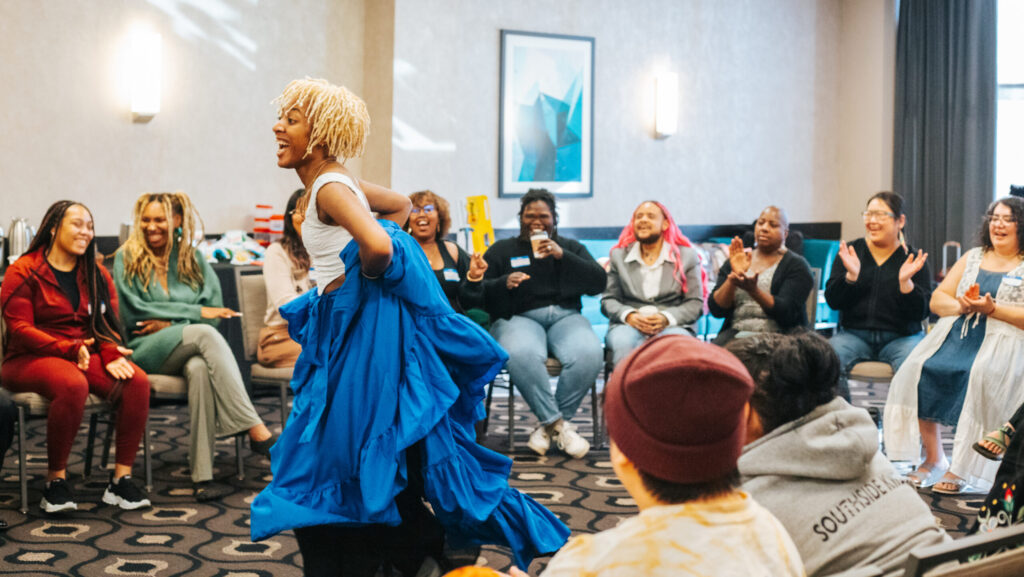
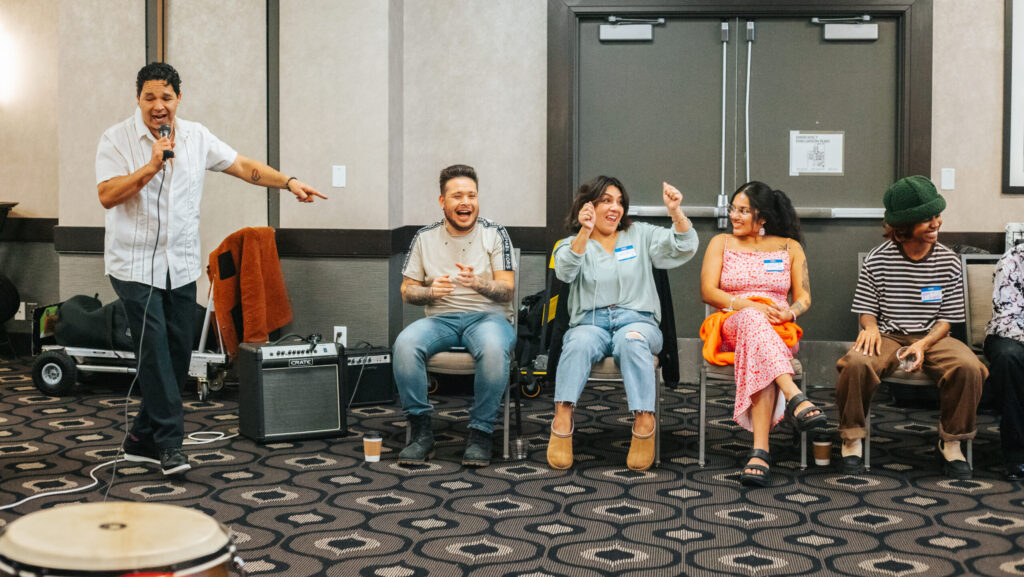
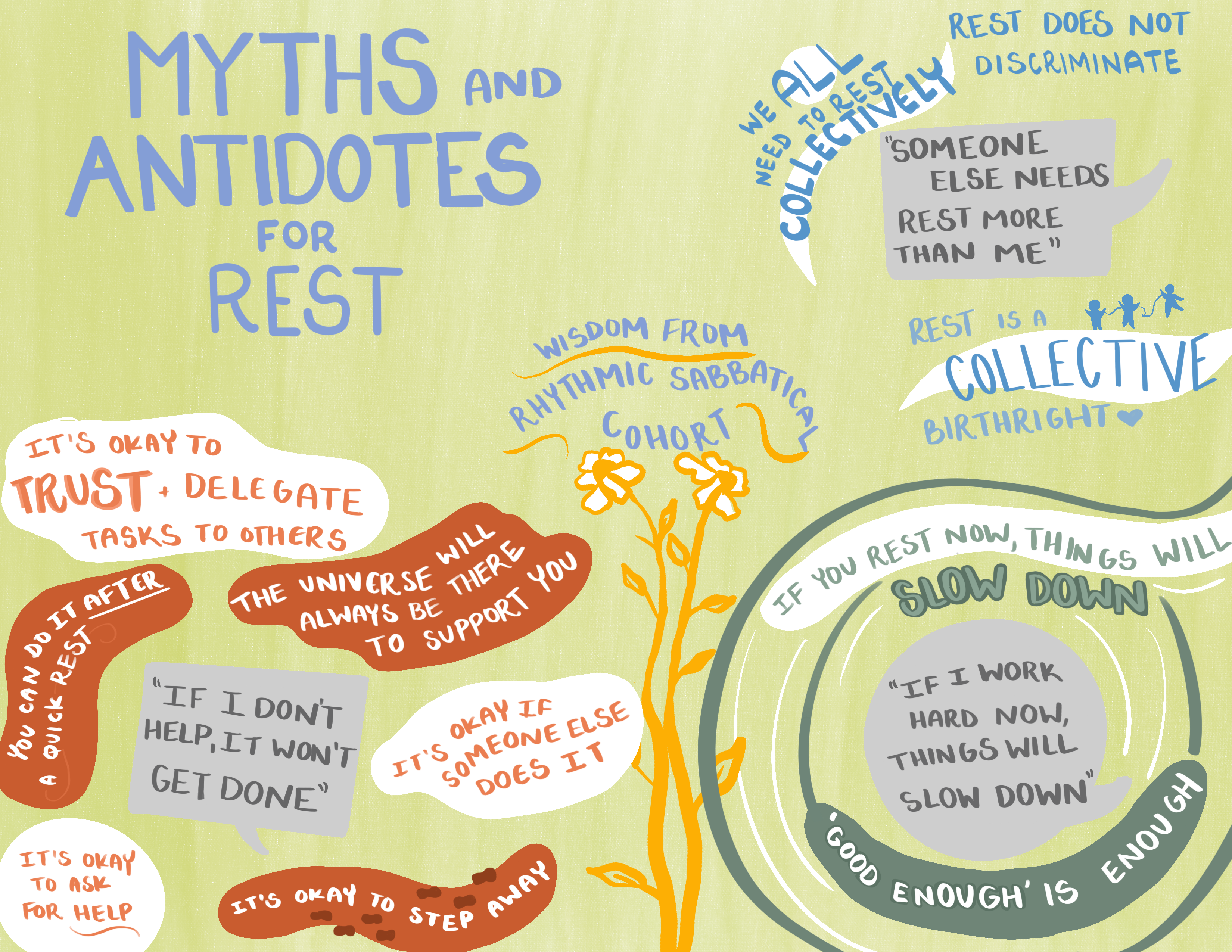
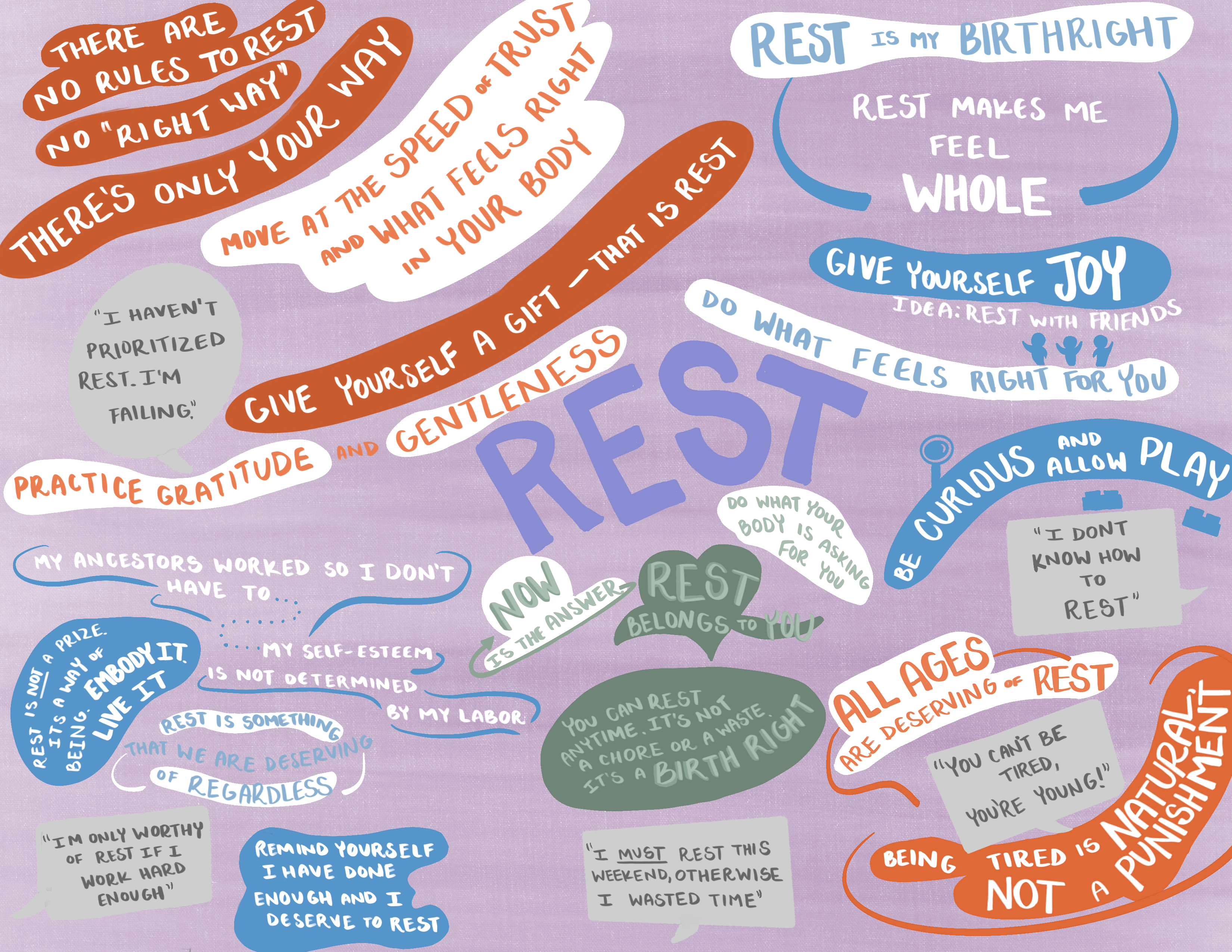
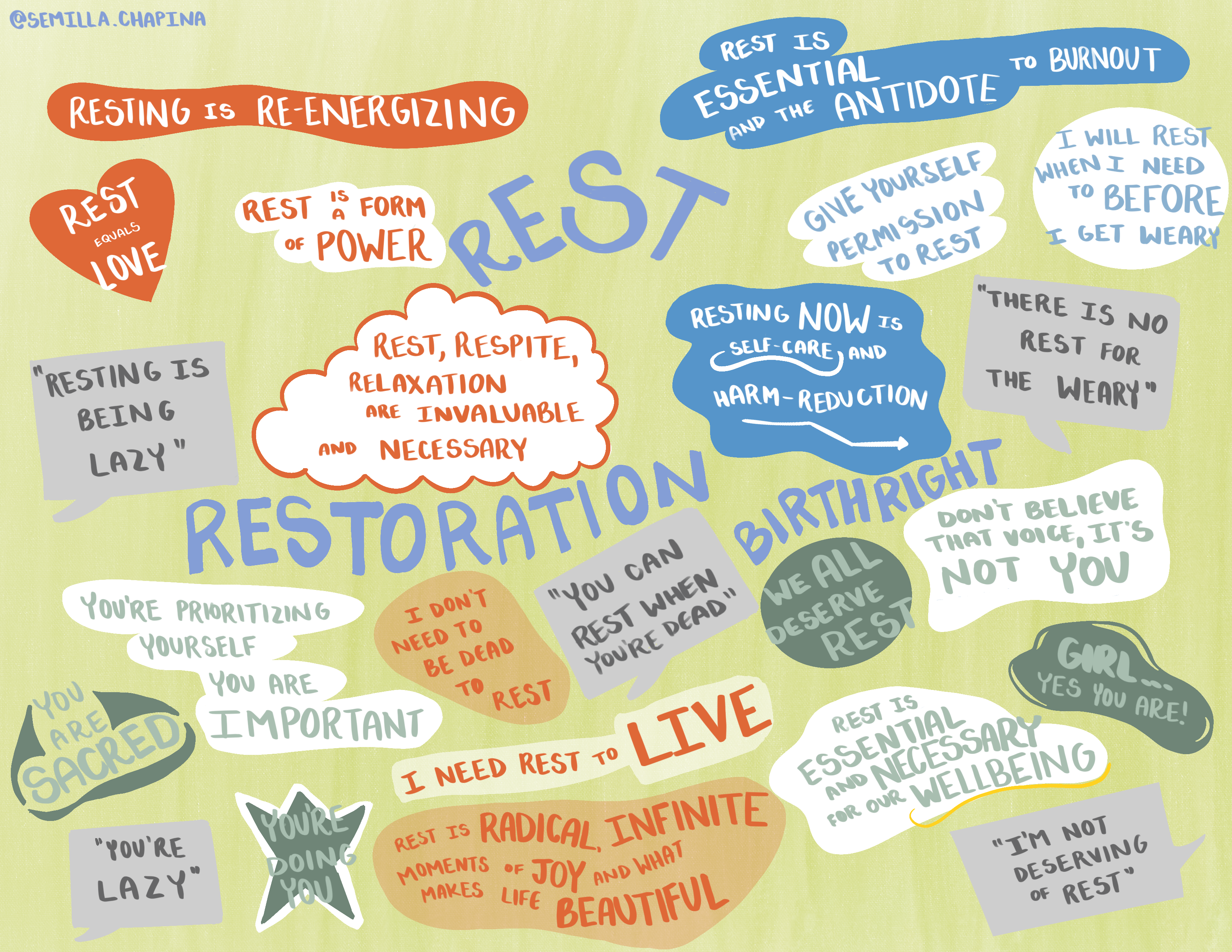
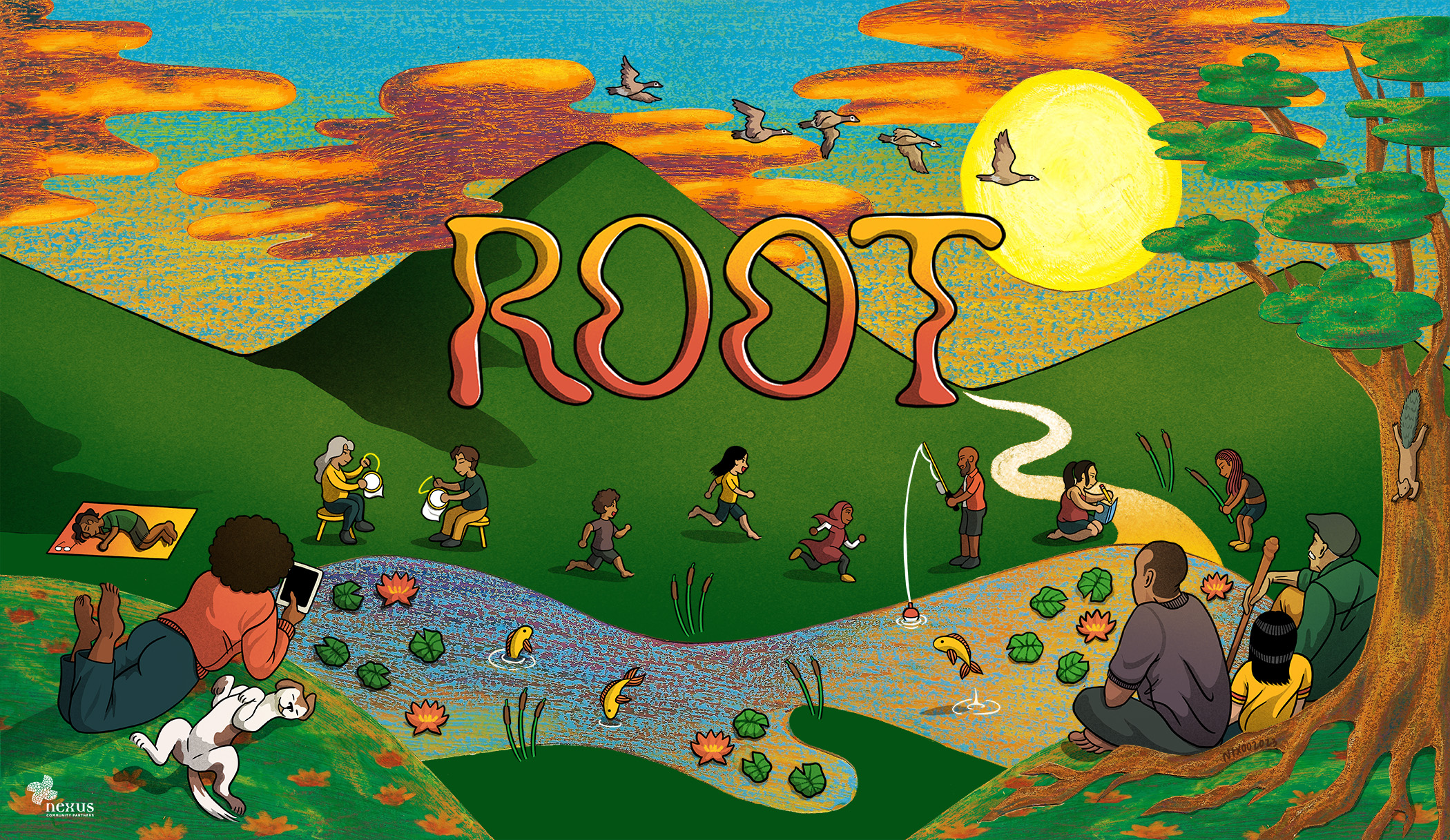
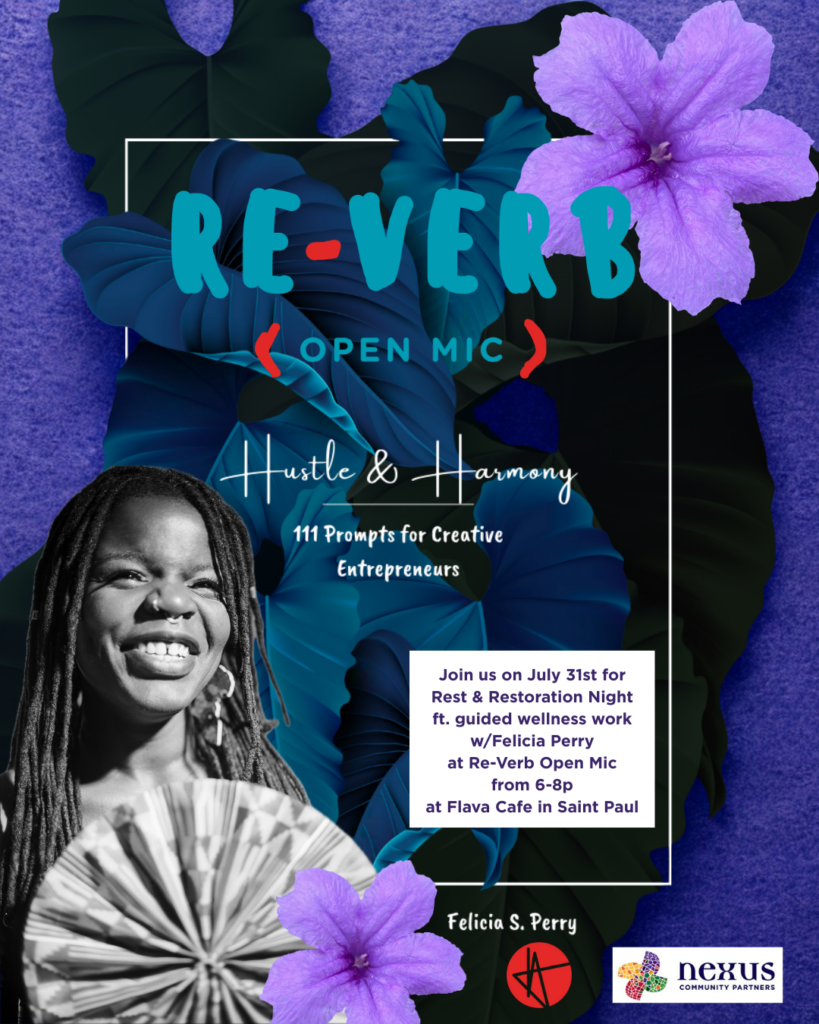
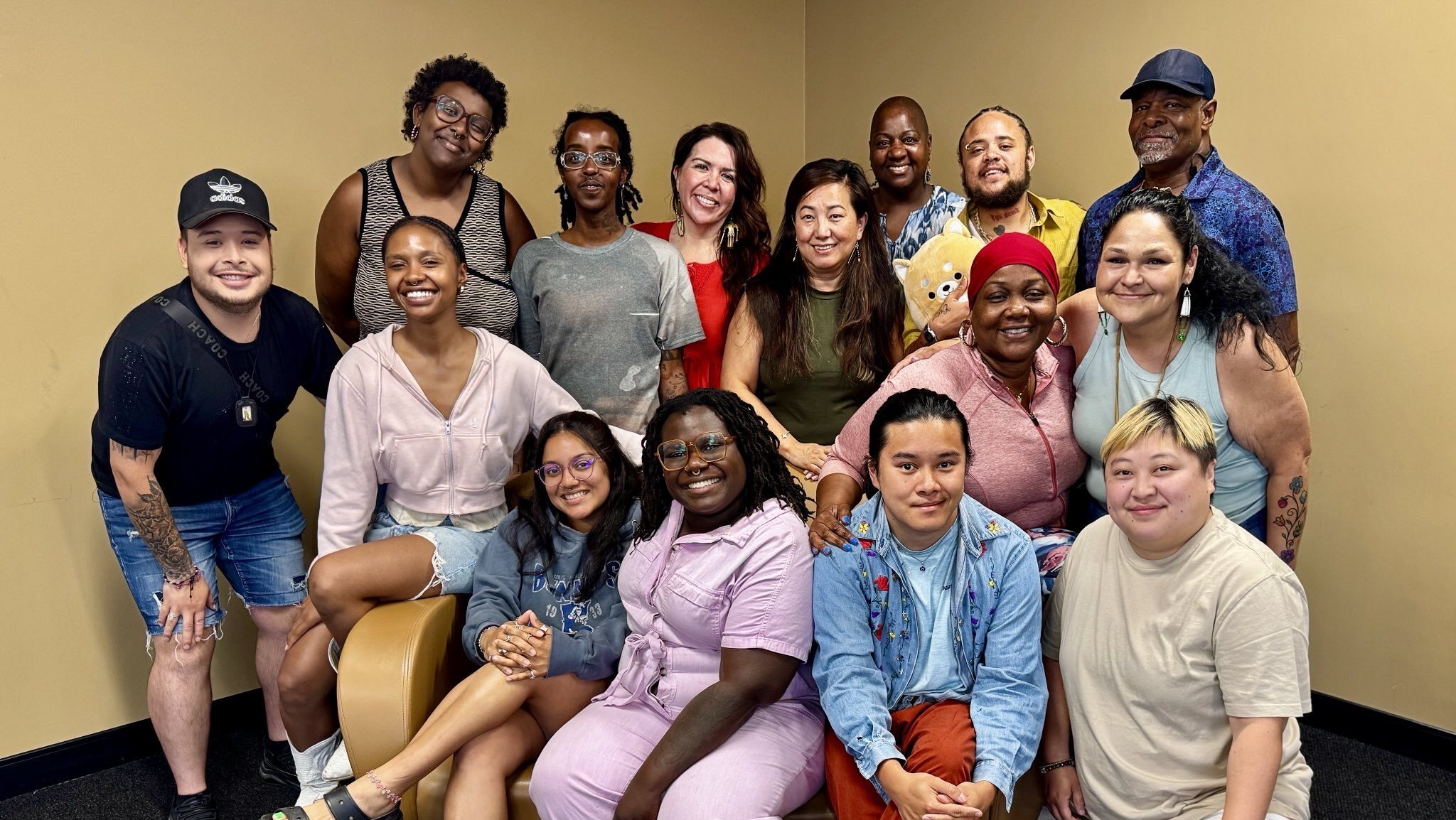
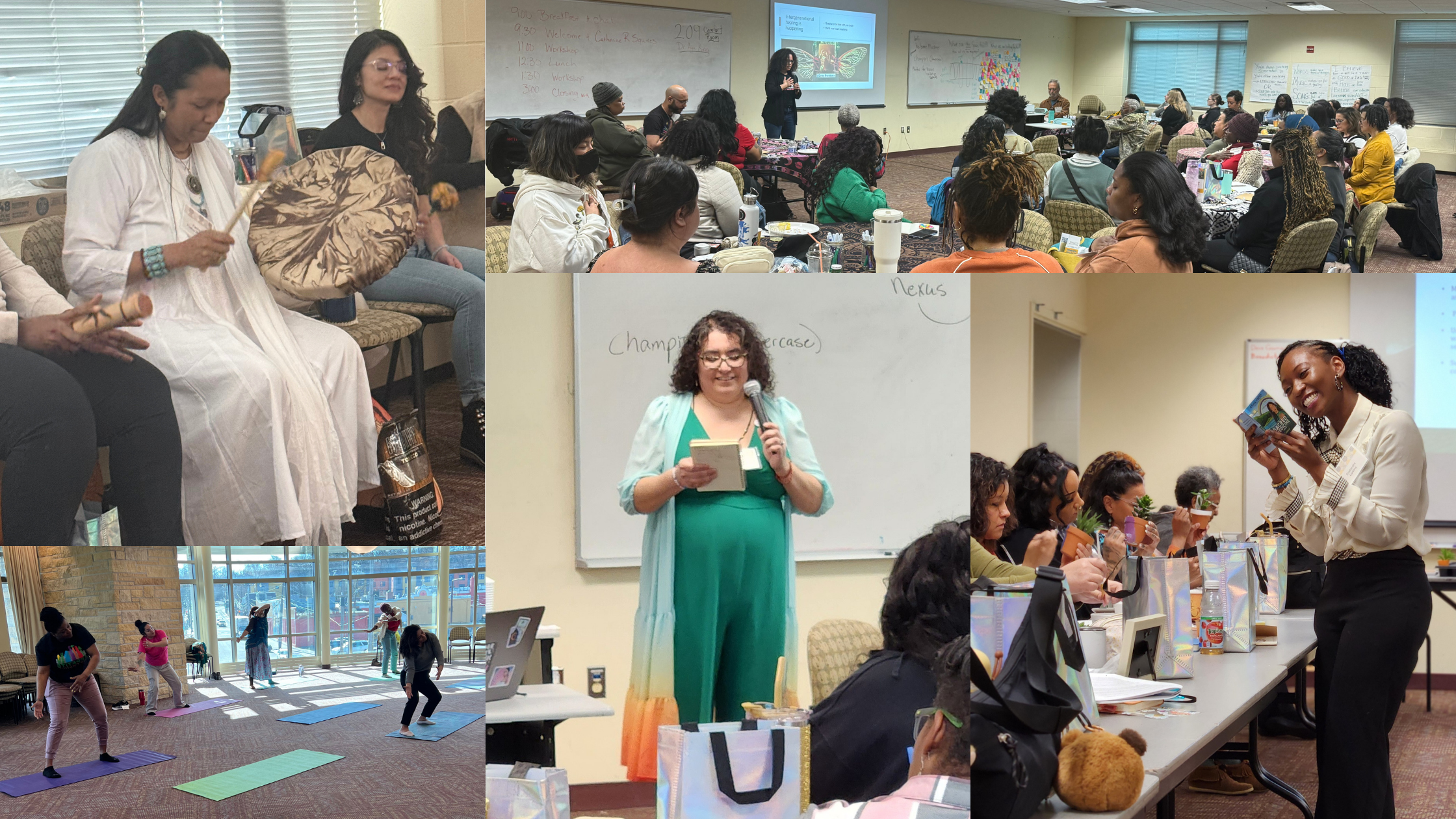
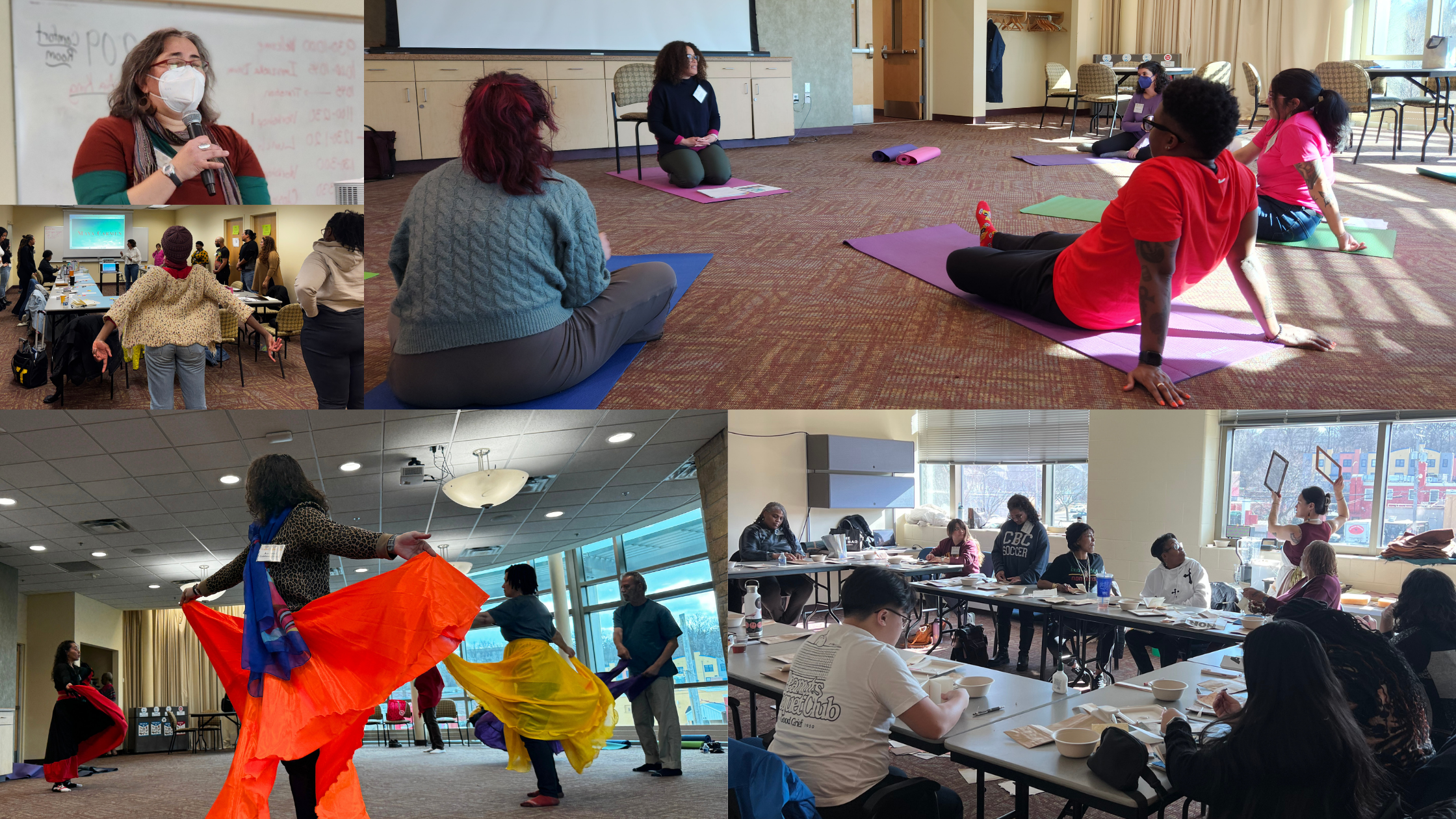
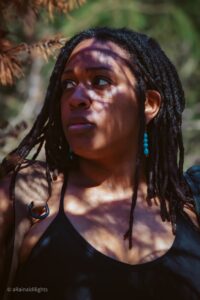 Shewon is an intuitive bodywork practitioner, death doula, and spiritual life coach who aims to bring her clients closer to self awareness. She seeks to share her wisdom and journey of attaining a stress-free existence through reflective healing and learning how to authentically check in with oneself. She is also an ordained, nondenominational minister.
Shewon is an intuitive bodywork practitioner, death doula, and spiritual life coach who aims to bring her clients closer to self awareness. She seeks to share her wisdom and journey of attaining a stress-free existence through reflective healing and learning how to authentically check in with oneself. She is also an ordained, nondenominational minister.